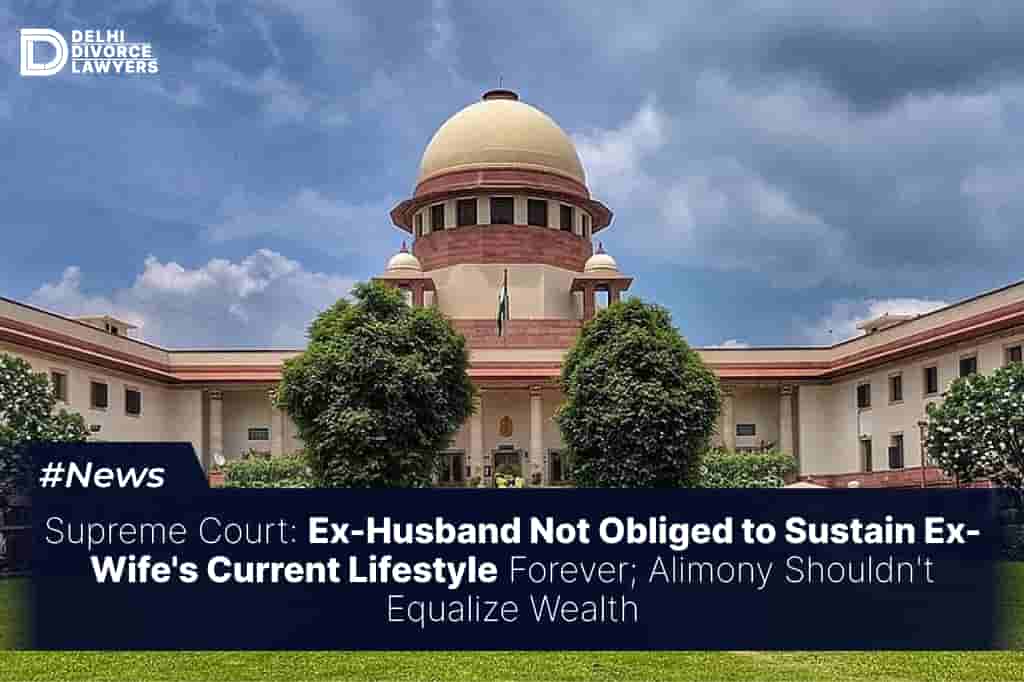The Supreme Court has ruled that a divorced wife cannot claim permanent alimony simply to achieve financial equality with her ex-husband. Addressing a troubling trend in matrimonial disputes, the Court emphasized that maintenance or alimony should not be viewed as a means of “equalizing wealth between the parties.”
While a wife is entitled to maintenance that reflects the standard of living she had during the marriage, the husband is not required to provide support based on his current financial situation.
The Court clarified that a husband’s financial improvement after separation does not justify an increase in alimony.
“We wonder, would the wife be willing to seek an equalisation of wealth with the husband if due to some unfortunate events post-separation, he has been rendered a pauper?” the Court asked.
A bench consisting of Justice BV Nagarathna and Justice NK Singh expressed their concerns in the following manner:
“We have serious reservations with the tendency of parties seeking maintenance or alimony as an equalisation of wealth wit the other party. It is often seen that parties in their application for maintenance or alimony highlight the assets, status and income of their spouse, and then ask for an amount that can equal their wealth to that of the spouse. However, there is an inconsistency in this practice, because the demands of equalisation are made only in cases where the spouse is a person of means or is doing well for himself. But such demands are conspicuously absent in cases where the wealth of the spouse has decreased since the time of separation. There cannot be two different approaches to seeking and granting maintenance or alimony, depending on the status and income of the spouse.
The law of maintenance is aimed at empowering the destitute and achieving social justice and dignity of the individual. The husband is under a legal obligation to sufficiently provide for his wife. As per settled law, the wife is entitled to be maintained as far as possible in a manner that is similar to what she was accustomed to in her matrimonial home while the parties were together. But once the parties have separated, it cannot be expected of the husband to maintain her as per his present status all his life.
If the husband has moved ahead and is fortunately doing better in life post his separation, then to ask him to always maintain the status of the wife as per his own changing status would be putting a burden on his own personal progress.”
The Court was deliberating on the issue of permanent alimony following the dissolution of a marriage deemed irretrievably broken. The petitioner (wife) asserted that the respondent (husband) owned assets worth ₹5000 crores in the US and had previously paid ₹500 crores as alimony to his first wife. Surprised by the claim, the Court noted that the petitioner was seeking to align her financial status not only with the respondent but also with his former spouse. In the end, the Court determined the permanent alimony to be ₹12 crores.
“The Court has to not just consider the income of the respondent-husband here, but also bear in mind other factors such as the income of the petitioner-wife, her reasonable needs, her residential rights, and other similar factors. Thus, her entitlement to maintenance has to be decided based on the factors applicable to her and not depend on what the respondent had paid to his ex-wife or solely on his income,” the judgment stated.
In its judgment, the Court observed that alimony disputes often become the most contentious part of marital proceedings, typically involving multiple allegations aimed at uncovering the other party’s income and assets. The judgment referenced the principles established in Kiran Jyot Maini vs. Anish Pramod Patel (2024) and Rajnesh vs. Neha (2020).

